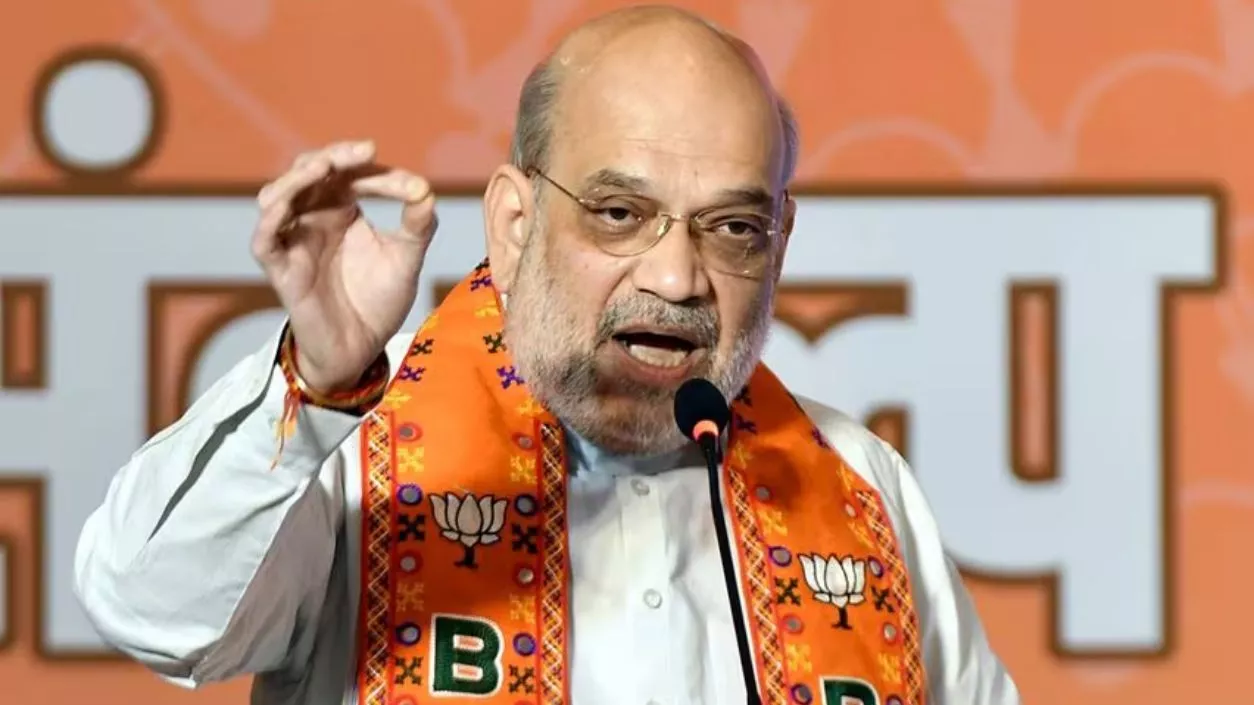Speeding bus mows down pedestrian at MG Road more, driver flee
.gif)
.gif)

Union Minister Amit Shah unveiled the Bharatiya Janata Party's (BJP) 'Sankalp Patra' manifesto for the upcoming Maharashtra assembly elections, set to be held on November 20. The manifesto, which outlines BJP’s key promises for the state, underscores the party's vision for Maharashtra’s economic development, social justice, and cultural preservation. During the event, Shah criticized Shiv Sena (UBT) chief Uddhav Thackeray and the Congress party, accusing them of dishonoring the legacies of Maharashtra’s iconic leaders, Balasaheb Thackeray and Veer Savarkar. Shah’s remarks were aimed at challenging the alliance between Thackeray’s Shiv Sena (UBT) and Congress, which he claimed had continually belittled these historical figures.
Shah questioned Uddhav Thackeray’s loyalty to Maharashtra’s legacy, suggesting that Thackeray’s alignment with Congress was in direct contradiction to the values upheld by Balasaheb Thackeray and Veer Savarkar. He specifically challenged Thackeray to ask Congress leader Rahul Gandhi to publicly acknowledge and praise the contributions of Veer Savarkar to India's freedom struggle. Shah said, "I want to ask Uddhav Thackeray if he can request Congress leader Rahul Gandhi to say two good words for Veer Savarkar," referring to the tension between Congress and the Thackeray family over historical and ideological differences. The criticism extended to the Congress party as a whole, with Shah accusing its leaders of disrespecting Balasaheb Thackeray’s legacy, a move aimed at highlighting the BJP’s stance as the true protector of Maharashtra’s ideological heritage.
In his address, Shah further explained that the BJP’s manifesto was a reflection of the hopes and aspirations of the people of Maharashtra. The document emphasizes the state’s historical significance, pointing to its contributions to the Bhakti movement, the Indian freedom struggle, and social revolutions. The BJP manifesto also seeks to address contemporary issues, such as economic growth, employment, infrastructure development, and social justice. Shah attacked the opposition Maha Vikas Aghadi (MVA), which comprises Shiv Sena (UBT), Congress, and the Nationalist Congress Party (NCP), for what he described as poll promises rooted in appeasement and ideological betrayal. He claimed that the opposition's promises undermine the state’s core values and the development agenda, contrasting them with the BJP’s commitment to fulfilling its resolutions.
A significant portion of Shah’s address focused on the issue of reservations. He questioned the opposition’s push for extending reservations based on religion, particularly for Muslims, highlighting that the Indian Constitution prohibits religion-based reservations. Shah’s remarks were aimed at the MVA alliance, which has supported various forms of affirmative action for minority communities. He reiterated that the BJP would continue to oppose such proposals, emphasizing the need to adhere to constitutional principles. The debate over reservations remains a major political issue in Maharashtra, with parties across the spectrum offering differing solutions to address the state’s social and economic disparities.
Shah also turned his attention to Sharad Pawar, leader of the NCP, questioning his contributions to Maharashtra during his tenure as a minister in the UPA government. Shah called on Pawar to explain what he had achieved for the state, pointing to the decade-long period when the NCP held significant power in the central government. He suggested that Pawar’s tenure had not adequately addressed the concerns of Maharashtra’s citizens, further criticizing the NCP for its failure to deliver on key promises. This remark added to the BJP’s ongoing attack on the opposition, positioning the party as a strong alternative to the current political leadership in the state. The BJP's 'Sankalp Patra' also outlines a series of commitments aimed at economic growth, job creation, improved infrastructure, and enhanced education and healthcare systems.